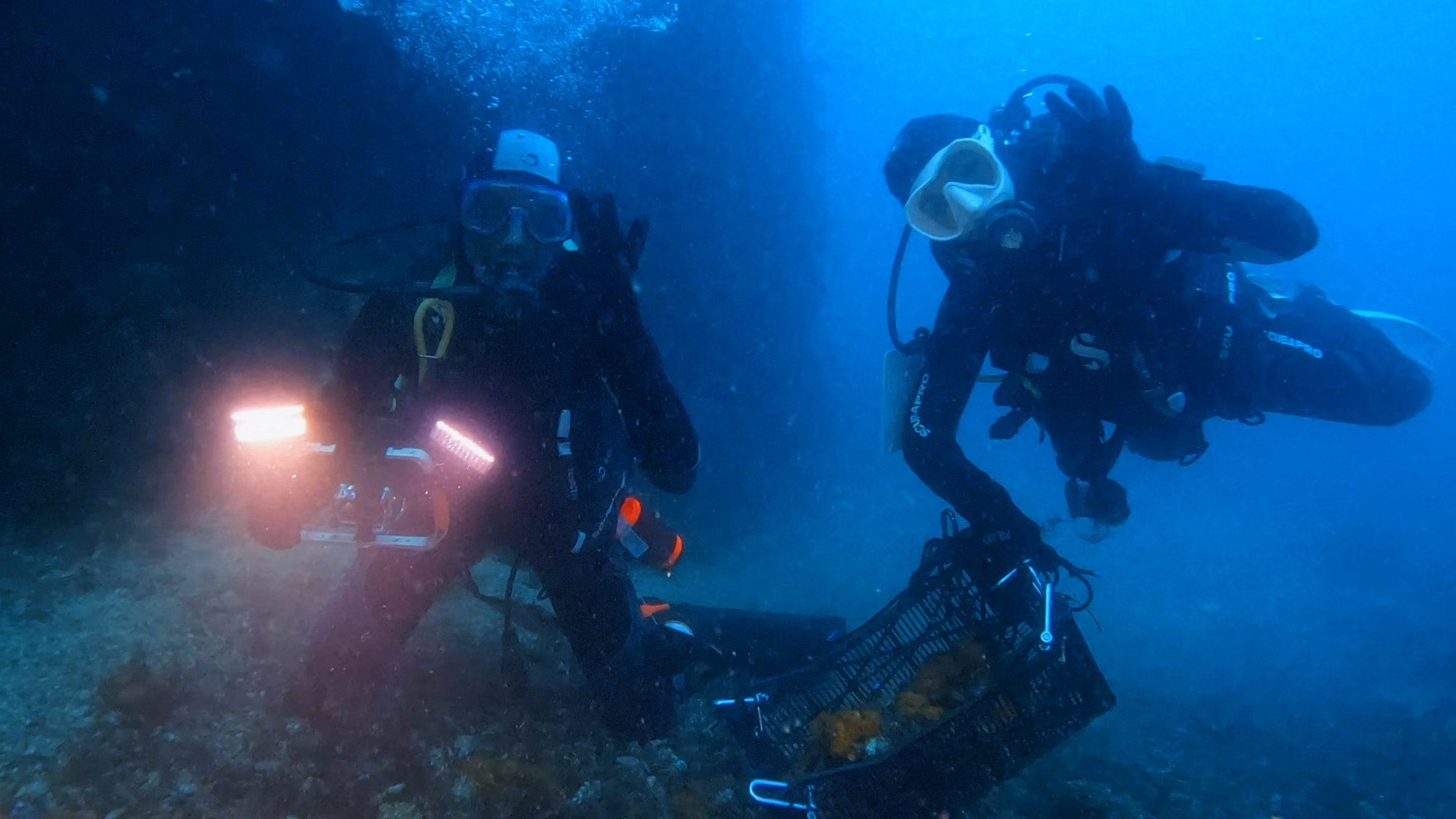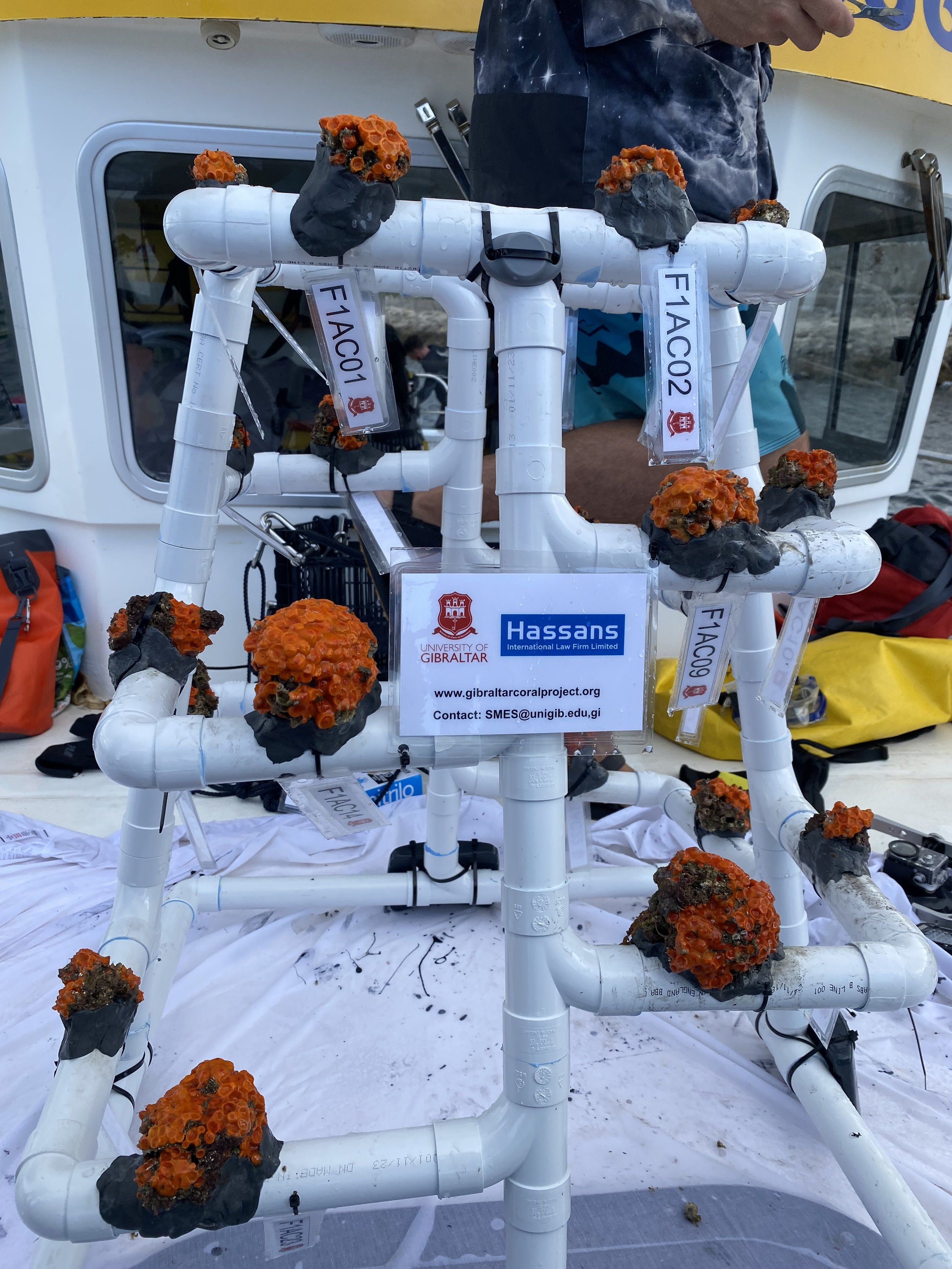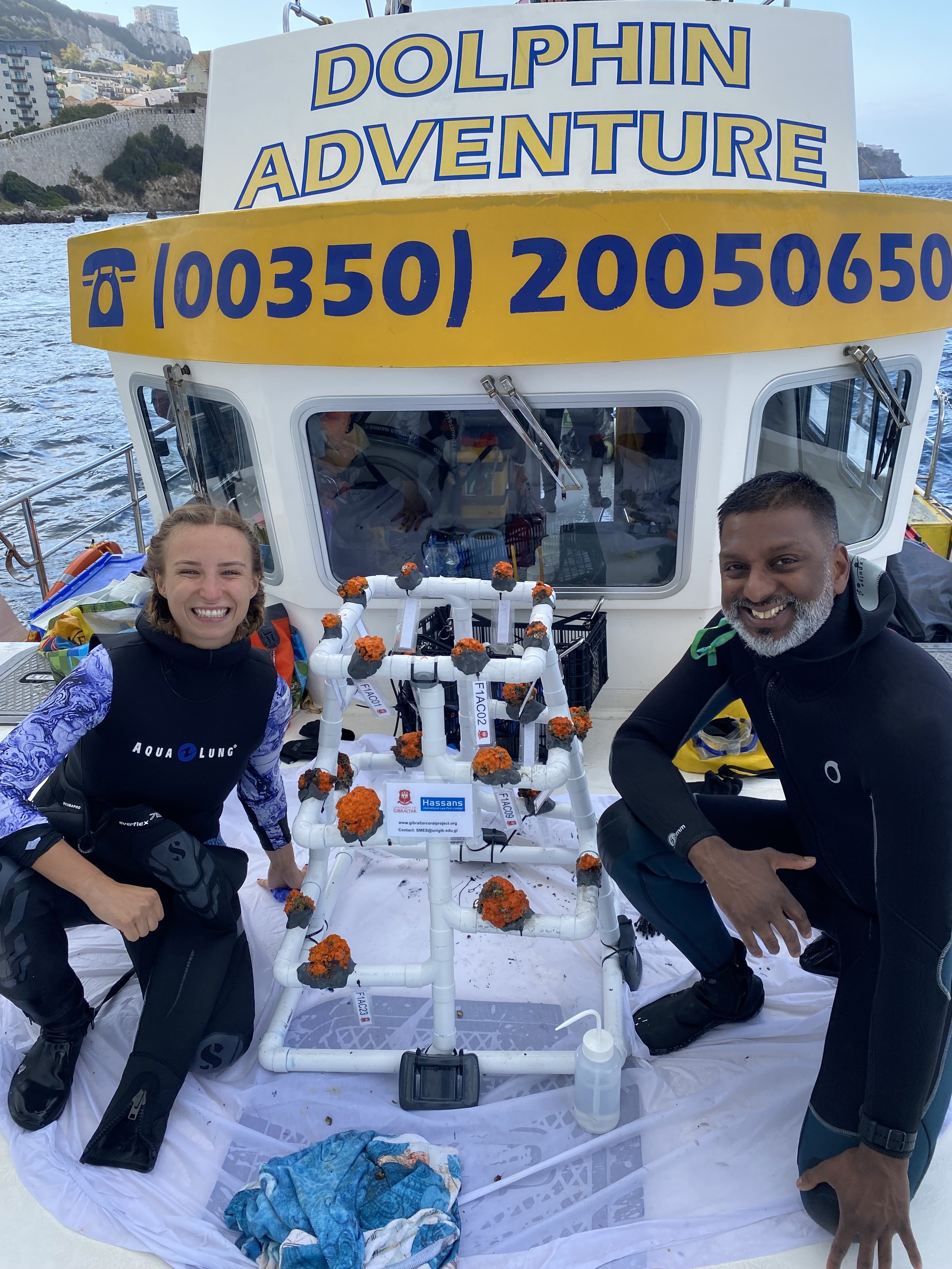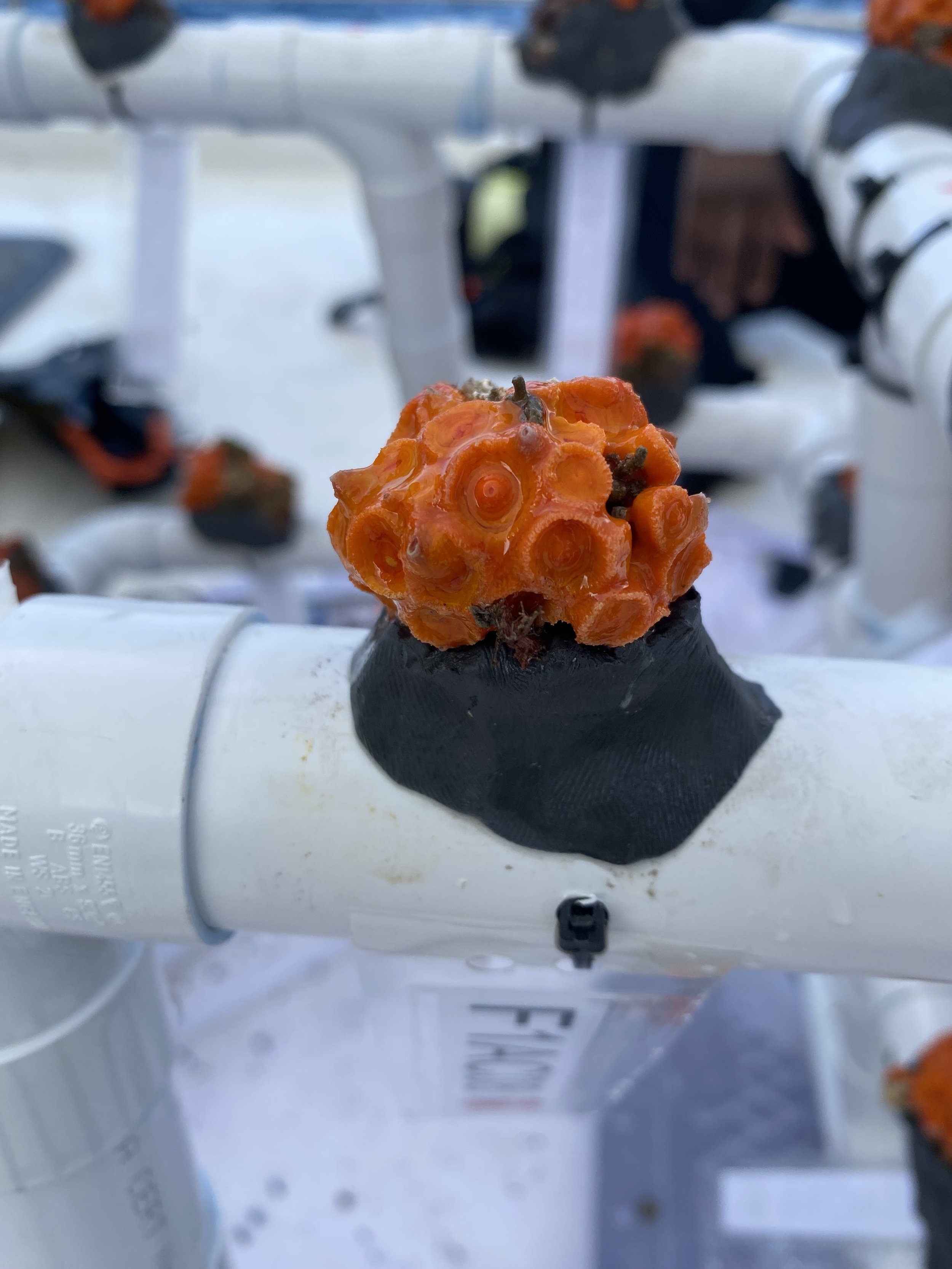
Gibraltar’s first
coral restoration project.
About the
Project
The Gibraltar Coral Project, led by the University of Gibraltar in collaboration with Hassans Law Firm, focuses on the feasibility of restoring the orange cup coral (Astroides calycularis) within British Gibraltar Territorial Waters. By designing and deploying artificial coral frames and transplanting naturally dislodged coral colonies onto them, we aim to contribute to the recovery of the endangered orange cup coral while fostering public and stakeholder engagement to promote sustainable marine conservation.
About the
Researcher
My name is Viviane Wiedecke. I am from Berlin and currently pursuing an MSc in Marine Sciences and Climate Change at the University of Gibraltar. I hold a BSc in Environmental and Resource Management and have worked as a dive instructor around the world for three years. My master's project aims to establish Gibraltar's first coral restoration efforts, focusing on orange cup coral. Through this project and my broader career goals, I aim to combine my diving skills and academic expertise to promote global marine conservation, both by conducting hands-on restoration work and raising awareness through science communication.
-

Dr Awantha Dissanayake
Head of School (Marine & Environmental Sciences)
-

Sinead Danino
Communication and Marketing Manager
-

Luke Gracia
Communications and Marketing Officer / Website Developer

Why Coral Restoration in
Gibraltar?
Coral reefs are crucial to marine ecosystems, offering habitat for marine species, sustaining biodiversity, and generating significant economic benefits. In Gibraltar, environmental stressors like climate change, pollution, and unsustainable tourism practices threaten the endemic orange cup coral.
Restoring these coral communities helps preserve their ecological role, supports the diving tourism industry, and fosters a sense of stewardship for marine conservation. Local coral restoration aims to protect fragile underwater ecosystems and bolster the resilience of marine biodiversity in the face of global environmental challenges.
The Orange
Cup Coral
Astroides calycularis
Astroides calycularis, commonly known as the orange cup coral, is found in the Western Mediterranean and Gibraltar. This visually appealing species is ecologically significant as it provides habitat complexity that supports other marine life. It faces challenges such as warming waters and habitat destruction. The project will monitor the growth and health of transplanted coral colonies to better understand and aid its restoration.
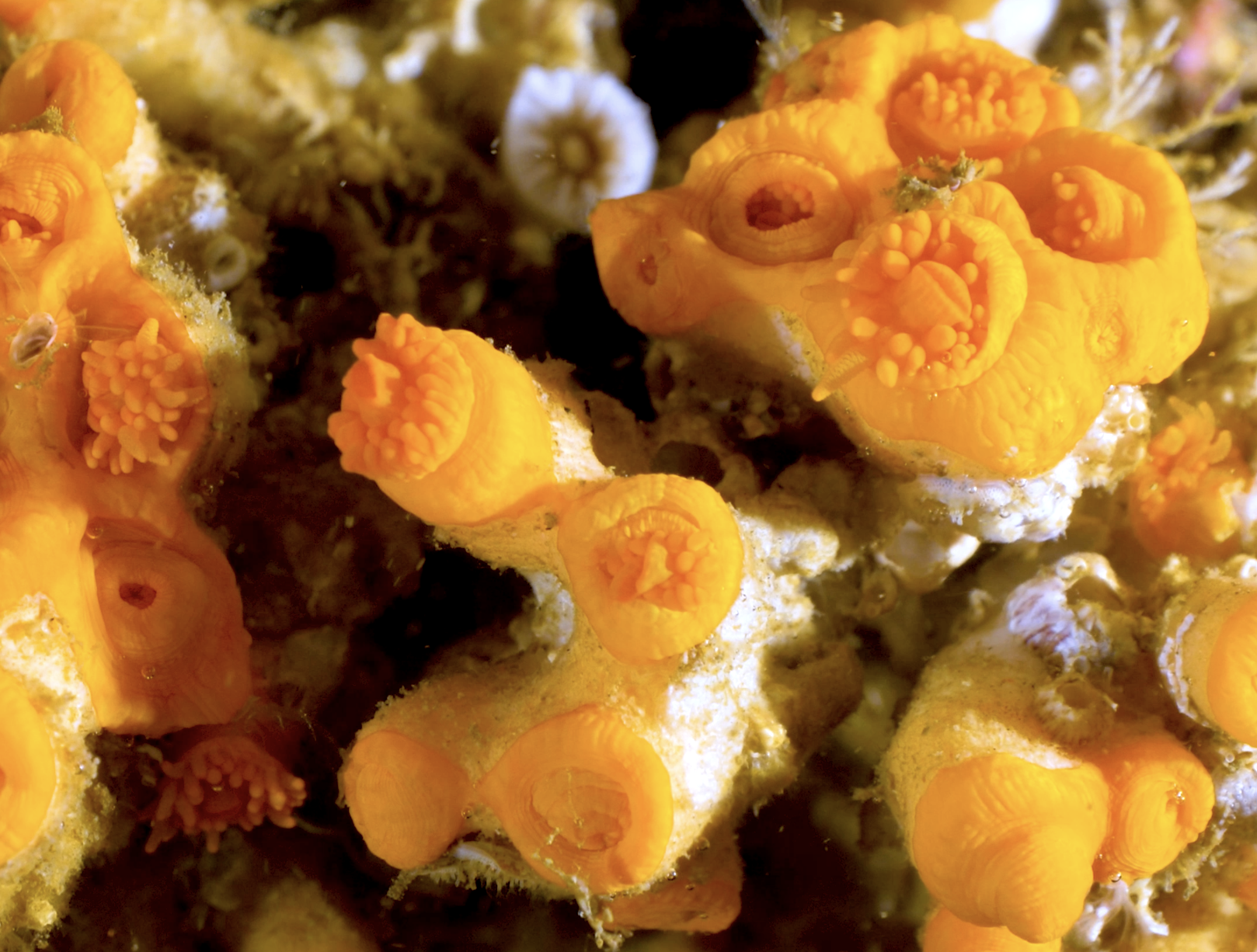
Adopt a
Coral
Coming Soon
In September 2023, Hassans International Law Firm Limited launched the Hassans Environment Prize (HEP 2023) which will award £7,000 to up to two environmental initiatives in Gibraltar to help bring their project to fruition. The School of Marine and Environmental Science (University of Gibraltar) were co-recipients of the HEP 2023. Dr Awantha Dissanayake followed with his team’s desire to undertake a one-year research project focussed on coral restoration within Gibraltar waters. The project aims to engage the whole community in being able to monitor, both via dives and via digital technology, the status of Astroides calycularis, a specific species of coral found in Gibraltar waters and the replenishment of it. Specific tools will be installed, such as coral frames which will encourage growth and people will even be given the opportunity to “adopt-a-coral” so that they can support and enjoy seeing the growth of new marine life for themselves.
The primary purpose of the School of Marine and Environmental Science is to launch competent, multidisciplinary graduates to embark as scientists, managers, consultants in a variety of roles within NGOs, governmental departments and academia. Research-based teaching is at the heart of our teaching ethos where focus is placed on students undertaking enquiry-based learning. Research-led learning is the focus of our research projects where once students are taught how to successfully embark on a research project, they tackle ‘real-world’ problems. Against the backdrop of Climate Change and the Biodiversity Crisis, active restoration programmes are required to restore habitats helps protect biodiversity by providing essential resources and suitable conditions for organisms to thrive.













